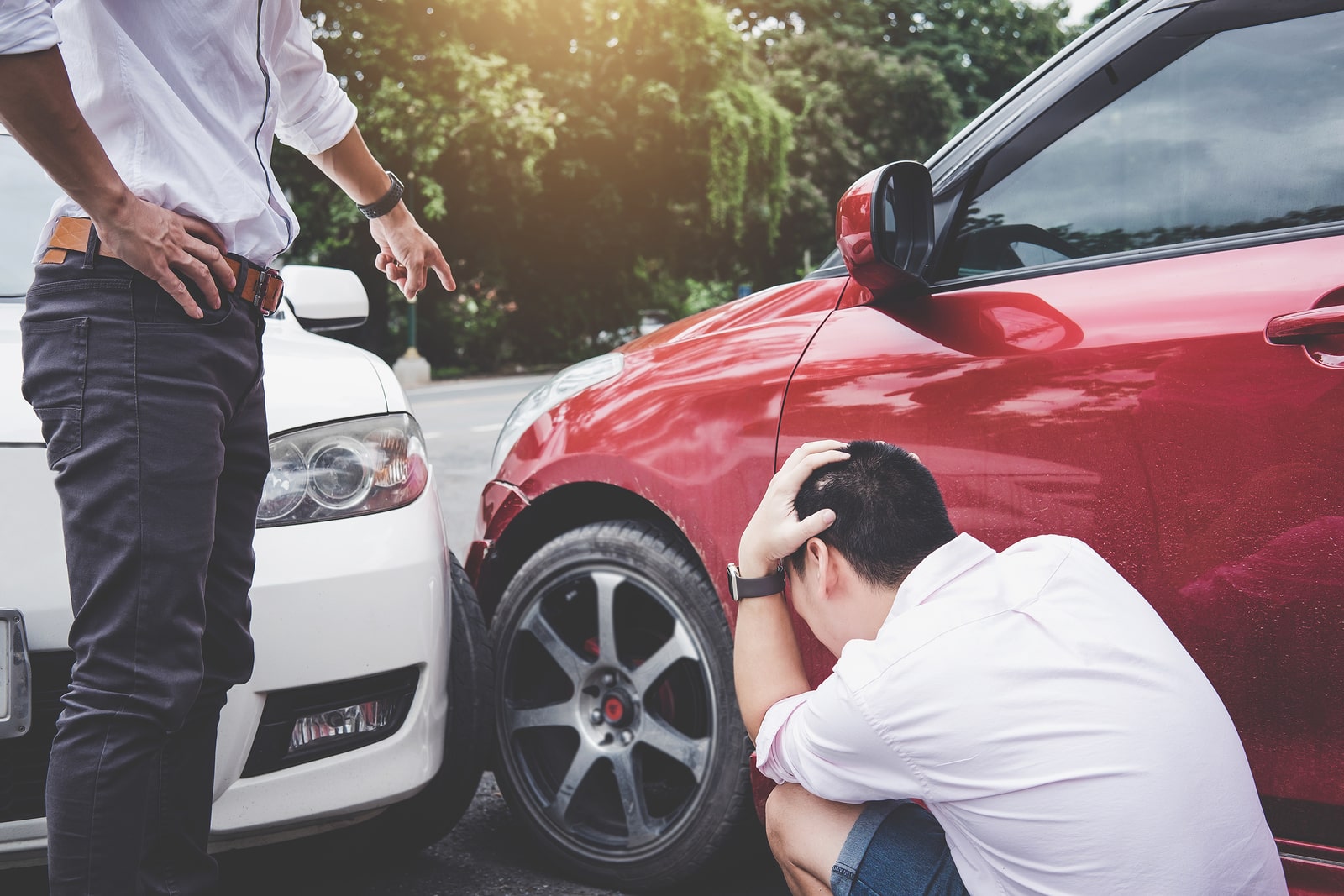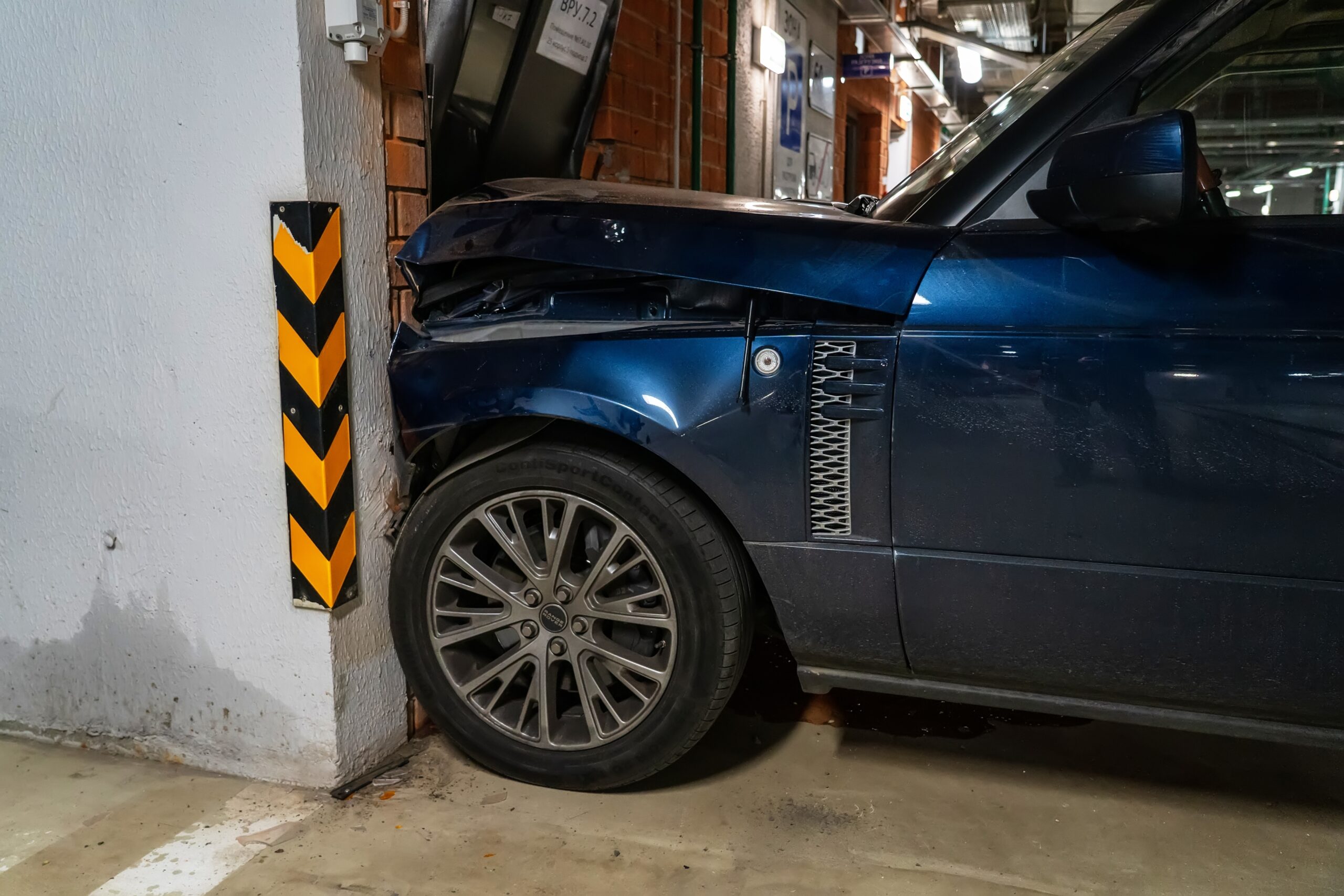To file a car accident claim against a government entity in Illinois, you must first identify the correct agency (federal, state, or local) and then file a formal "Notice of Claim" before a strict deadline. This deadline is as short as one year for local entities like the City of Chicago. This process is entirely different from a standard car insurance claim.
The government is protected by a legal concept called sovereign immunity, which means it sets its own rules for being sued. These rules involve shorter timelines, specific forms, and sometimes caps on the compensation you receive. Failing to follow these procedures precisely prevents you from recovering anything for your injuries.
However, laws like the Illinois Court of Claims Act and the Federal Tort Claims Act provide a clear path to hold these entities accountable. If you have questions about an accident involving a government vehicle or agency, call us at (312) 924-7575 for a straightforward conversation about your situation.
Key Takeaways for Filing a Car Accident Claim Against the Government
- You have a much shorter deadline to act. Claims against the City of Chicago or the State of Illinois must be filed within one year, which is half the time allowed for standard injury claims.
- You must file a formal Notice of Claim before you file a lawsuit. Simply contacting the agency is not enough; you must use specific forms and follow a rigid administrative process first.
- Filing with the wrong government agency is a fatal error. A claim against a CTA bus goes to the CTA, not the City of Chicago, and an accident with a USPS truck is a federal claim, each with its own rules.
Why Is a Claim Against the Government So Different?
When you are in an accident with another driver, you both operate under the same set of rules. When the other party is the government, the playing field changes.

The government grants itself a form of legal protection called sovereign immunity, a concept dating back centuries that originally meant a king could not be sued in his own courts.
Today, this means a government entity—whether it's the City of Chicago, the State of Illinois, or a federal agency—cannot be sued unless it gives you permission. This "permission" comes with a list of strict conditions. You do not just file a lawsuit. You must first follow a unique preliminary process, and any mistake is used to deny your claim.
It’s a system with more paperwork, more procedural traps, and less room for error than a typical claim.
The government’s "permission slip" to be sued comes in the form of laws called tort claims acts. These laws waive sovereign immunity, but only for those who follow the rules exactly. Our firm, Abels & Annes, P.C., understands how to meet these institutional requirements, ensuring your claim is filed correctly from the start.
- For federal employees: The Federal Tort Claims Act (FTCA) is the rulebook.
- For the State of Illinois: The Illinois Court of Claims Act dictates the entire process.
- For local entities (cities, counties, parks): Specific state statutes and local ordinances apply.
The Single Most Important Factor: Your Deadline to Act
Before you consider a car accident lawsuit, you must file a formal document called a Notice of Claim. This document officially informs the government entity of the incident, your injuries, and your intent to seek damages.
Unlike the standard two-year statute of limitations for most personal injury cases in Illinois, the deadline to file your Notice of Claim is much shorter.
- Claims Against the City of Chicago: You have just one year from the date of the accident to file your formal notice with the City Clerk.
- Claims Against the State of Illinois: Similarly, you have one year to file a claim in the Illinois Court of Claims.
- Claims Against the Federal Government: You have two years to file your administrative claim with the correct federal agency.
This is not a soft deadline. If you fail to file your notice within the specified time, you lose your right to pursue compensation. The government almost certainly will have your case dismissed on this technicality alone, no matter how severe your injuries are.
Who Is Responsible? How to File a Car Accident Claim Against the Right Government Entity
Filing a claim with the wrong agency is the same as not filing one at all. You must identify the specific government body responsible for the vehicle or the hazard that caused your accident. An error here means missing the deadline to file with the correct entity.
Federal Government
This applies if you are hit by an employee of a federal agency acting within the scope of their employment.
- Examples: A U.S. Postal Service (USPS) mail truck, an FBI agent's vehicle, or a military vehicle.
- Who to File With: You file a claim directly with the specific federal agency involved (e.g., the legal department of the USPS).
State of Illinois
This is for accidents involving state employees or state-maintained property.
- Examples: An Illinois State Trooper's squad car, an Illinois Department of Transportation (IDOT) truck, or an accident caused by a dangerous condition on a state highway.
- Who to File With: You must file a claim in the Illinois Court of car accident Claims.
Local Government (Municipal, County, etc.)
This is the most common type of government claim and includes a wide range of local bodies.
- Examples: A Chicago Transit Authority (CTA) bus, a city police car, a Streets and Sanitation truck, or an injury from a large pothole on a city street.
- Who to File With: You file a notice directly with the specific municipality, such as the City of Chicago Clerk's office.
Our investigation starts with identifying the owner of the vehicle or the agency in charge of the road where you were hurt. At Abels & Annes, P.C., we review police reports, property records, and public documents to ensure the notice is sent to the correct entity from day one.
A Step-by-Step Guide to the Government Claim Process
Step 1: The Formal Notice of Claim
This is the official, written notification to the government. The notice must include details such as your name and address, the date and location of the accident, a general description of what happened, and the nature of your injuries. For claims against the U.S. government, you must use Standard Form 95 (SF-95).
Step 2: The Government's Investigation
Once the notice is filed, the government entity will assign an adjuster or investigator to the case. Their role is to conduct an investigation and determine if the government has any liability. Like any insurance company, a government agency must balance paying valid claims with protecting its finances. The investigator will look for any evidence to argue you were at fault or that your injuries are not as severe as you claim.
Step 3: The Agency's Decision
After the investigation, the agency will make a decision. There are two possible outcomes:
- Offer a settlement: If they accept liability, they may offer to pay for your damages.
- Deny your claim: They may argue their employee was not at fault, that your claim was filed incorrectly, or that immunity applies.
For federal claims, the agency has six months to respond. If they deny it sooner, or if you hear nothing after six months, you are then permitted to file a lawsuit in federal court.
Step 4: Filing a Lawsuit (If Necessary)
If your claim is denied or you are offered an unfairly low settlement, the next step is to file a formal lawsuit. A new clock starts ticking. Typically, after a denial, you have a limited time to file the lawsuit. For instance, after a federal claim denial, you have just six months to file in U.S. District Court.
What Compensation Is Recoverable in a Government Claim?
In many ways, the available compensation mirrors a standard personal injury claim. Our goal is to pursue recovery for all the ways the accident has impacted your life.
This includes:
- Economic Damages: This covers all your measurable financial losses, such as:
- Medical bills (past and future)
- Lost wages and diminished earning capacity
- Property damage to your vehicle
- Non-Economic Damages: This compensates you for the human cost of the accident, including:
- Pain and suffering
- Emotional distress
- Loss of enjoyment of life
However, there are a few key differences when seeking compensation from the government.
Damage Caps and Punitive Damages

Many government claims are subject to "damage caps," which limit the total amount of money you recover. For example, the Illinois Court of Claims Act places limits on the amount of damages the state is required to pay. This has been the subject of widespread debate, as it prevents severely injured people from being fully compensated.
Additionally, in Illinois, you cannot recover punitive damages from a government entity. Punitive damages are intended to punish a defendant for reckless behavior, but the law shields the government from these awards.
How Our Firm Manages These Complex Claims
The procedural requirements are the first and most common reason government claims fail. At Abels & Annes, P.C., we take a systematic approach to these cases.
- We Handle the Deadlines and Paperwork: We immediately calendar all notice and filing deadlines. We manage the preparation of the Notice of Claim or SF-95 to ensure it is accurate, complete, and filed with the correct entity on time.
- We Build the Case During the Investigation: While the government conducts its investigation, we are building ours. This includes gathering medical records, accident reports, witness statements, and, if needed, reports from accident reconstructionists.
- We Communicate With the Government on Your Behalf: You will not have to speak with government adjusters or attorneys. Our skilled car accident lawyers handle all communications, presenting your case in the strongest possible terms and shielding you from the stress of the process.
- We Are Prepared for Court: While many cases settle, we prepare every claim as if it will go to trial. If the government's offer is not fair, we are fully prepared to file a lawsuit and present your car accident case in court.
Frequently Asked Questions
What if a police officer hit me but had their lights and sirens on?
Even in an emergency response, officers must drive with a "due regard for the safety of all persons." This means they cannot drive recklessly. If an officer's actions were unreasonable for the situation, a claim may still be possible, though the legal standard to prove fault is higher. We would investigate the specifics of the situation to determine if a claim is viable.
Can I sue the city of Chicago for damage caused by a pothole?
Yes, but you must prove the city had "notice" of the dangerous pothole and failed to fix it within a reasonable time. This typically involves checking city maintenance records to see if the pothole had been previously reported or finding evidence of prior complaints about the same hazard.
Does my own car insurance play any role in this?
Yes. Your own uninsured/underinsured motorist (UIM) coverage could become relevant, especially if the government's liability is capped at an amount lower than your total damages. We help you understand all potential sources of recovery, including your own policies.
What does it cost to hire your firm for a government claim?
We handle all personal injury cases, including those against government entities, on a contingency fee basis. This means you pay no attorney's fees unless and until we recover compensation for you. The initial consultation is always free.
A Clear Path Forward with Abels & Annes, P.C.
You don’t need to be an expert on the Illinois Court of Claims Act (or any other complicated legal act) to get the help you need. One phone call is enough to get started.

We regularly help people in Chicago and across Illinois who have been injured in accidents involving government entities. We are familiar with the local agencies, the courts, and the unique challenges these cases present.
If you were injured in an accident and believe a government entity was at fault, call our office for a no-obligation consultation at (312) 924-7575 today.



